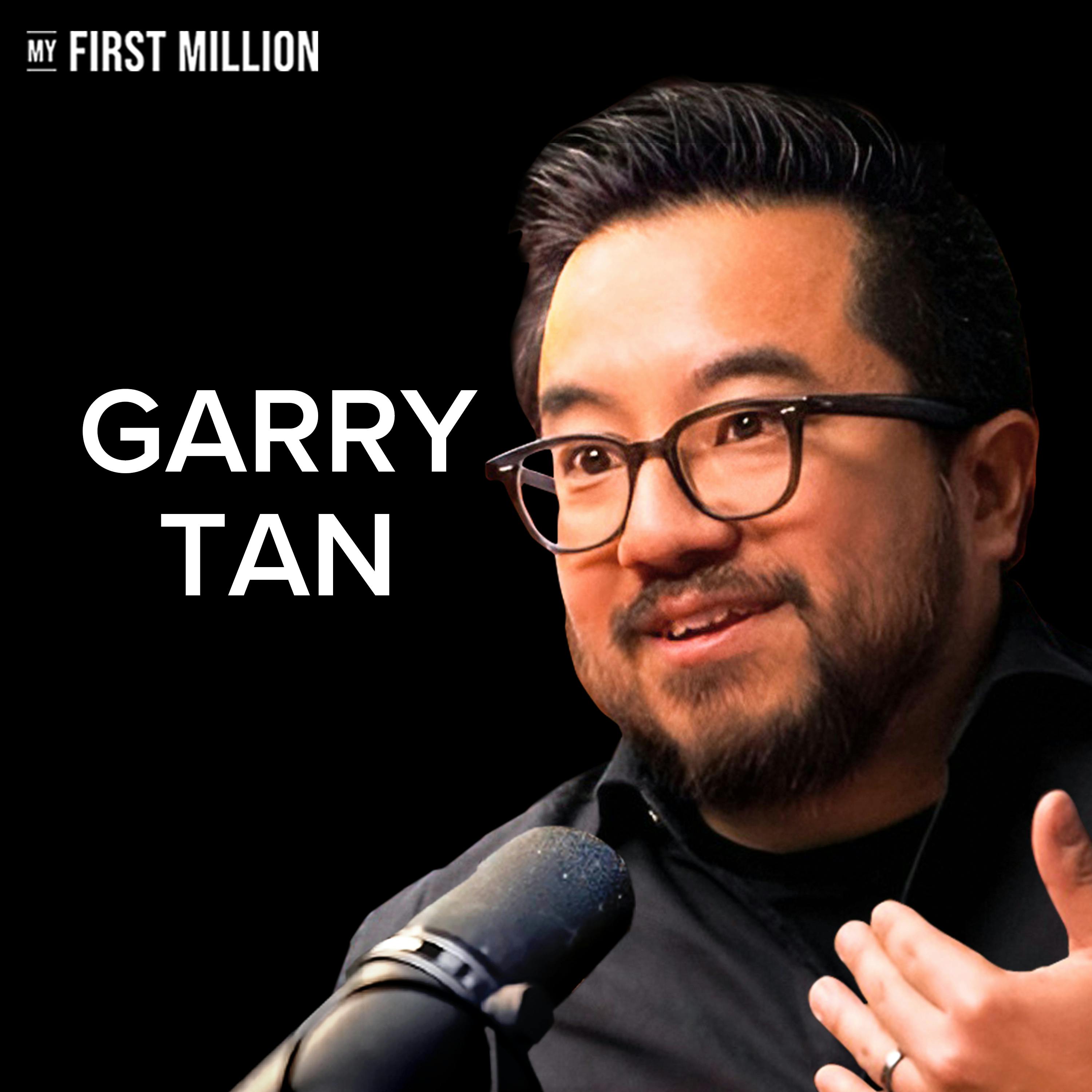
October 28, 2024 • 1hr 12min
Y Combinator CEO Shares How They Pick Winners, Advice For Founders + Lessons From Paul Graham | Garry Tan Interview
My First Million

Key Takeaways
- YC's Success Formula: Simple but effective approach of investing 7% for a standard deal, 10-minute interviews, and focusing on highly technical, smart and earnest founders
- AI Revolution: We're at an inflection point where 2-pizza teams empowered by large language models can build $100M-$1B businesses
- Distribution Matters: For consumer businesses, building an audience is crucial as big tech companies have a stranglehold on user acquisition through ads
- Avoid Corporate Mindset: Fight against formality and convention that can make companies lose their innovative edge
- Primary Experience: Don't take your worldview from media - get direct experience and information from customers and users
Introduction
In this episode, Sam Parr and Shaan Puri interview Garry Tan, CEO of Y Combinator. They discuss YC's incredible success rate, lessons from working with tech luminaries like Paul Graham and Peter Thiel, and insights on building successful companies in today's AI-driven landscape.
Topics Discussed
YC's Unique Approach to Startup Investment (7:31)
Garry explains how YC has maintained its extraordinary success rate in picking winners:
- Simple Process: 7% equity for a standard deal, 10-minute interviews, no complex negotiations
- Returns: Creates approximately $3 billion in market cap value per batch
- Investment Performance: Even bottom quartile investors in YC companies see 3.3x returns, while median is 5x
Early Career and Microsoft Decision (16:34)
Garry shares his journey from teenage web designer to tech professional:
- Early Start: At 14, cold-called companies from Yellow Pages offering web design services
- First Job: Worked for a web design firm making city websites, earning $7-10/hour
- Family Impact: Helped parents with house down payment from early earnings
The Palantir Opportunity (23:04)
Garry discusses turning down Peter Thiel's offer to co-found Palantir:
- The Offer: Thiel offered to match Garry's Microsoft salary to join as a co-founding engineer
- Lesson Learned: "The world doesn't happen to you - you go out and discover something about the world," reflects Garry on missing the opportunity
- Company Value: Palantir is now worth $95 billion in market cap
Path to First Million (32:20)
Garry describes his journey to financial success:
- Posterous: Founded blogging platform that competed with Tumblr
- Exit: First million came from Twitter stock after acquisition
- Timeline: Took 18 years from starting in tech at age 14 to first million
Early Days at YC (44:57)
Insights into YC's early culture and evolution:
- Humble Beginnings: Started in a warehouse with rickety furniture
- Perception: Initially viewed as "like a high school camp" by Silicon Valley
- Transformation: Became recognized as the premier startup accelerator after success of Dropbox and Airbnb
The Future of Startups (51:31)
Garry's perspective on the current opportunity:
- Small Teams: Two-pizza teams can now build massive businesses powered by AI
- Corporate Vulnerability: Large companies are unprepared for agile AI-powered startups
- Opportunity: Replace expensive offshore teams with AI-powered solutions
Advice for Founders in AI Era (54:36)
Practical guidance for building AI companies:
- Focus on Testing: Implement proper evals and test-driven development
- Customer First: Build worldview directly from customer data and needs
- Target Market: Look for businesses spending hundreds of thousands on knowledge work teams
The Spoon-Bending Story (1:05:57)
Garry shares a metaphorical story about execution:
- The Setup: At Burning Man, attended a "bend spoons with your mind" workshop
- The Lesson: Success requires both vision and practical action
- "Real life is sort of like this exercise - they say you can change the world with your ideas, but that alone is not enough. You actually have to go with your hands and go talk to users and build a thing," explains Garry
Conclusion
The conversation with Garry Tan reveals several crucial insights for entrepreneurs and investors. His experience spanning from teenage web designer to YC CEO provides a unique perspective on building successful companies. The key message is that while we're entering an unprecedented era of opportunity with AI, success still requires fundamental principles: direct customer interaction, avoiding corporate bureaucracy, and combining vision with practical execution.
For founders, the current moment presents an extraordinary opportunity to build massive businesses with small teams, particularly by leveraging AI to replace traditional knowledge work. However, success requires both the vision to see opportunities and the practical willingness to engage directly with customers and build solutions that truly address their needs.
